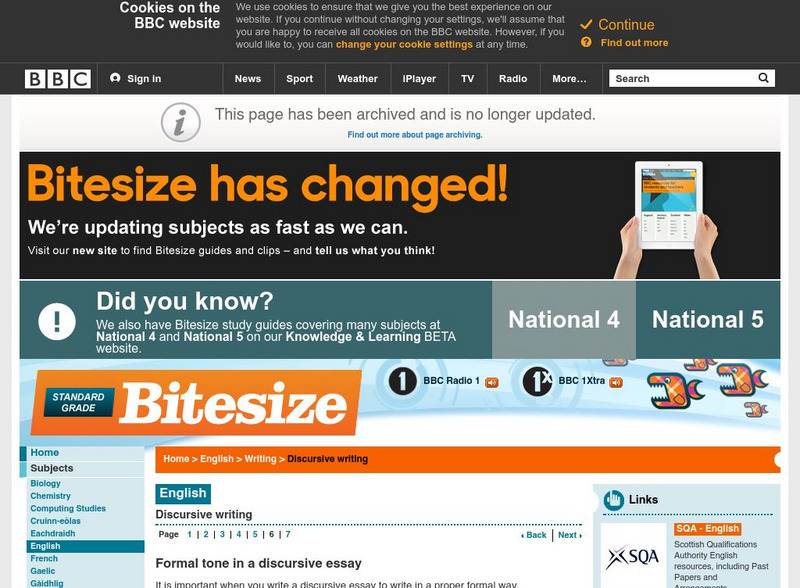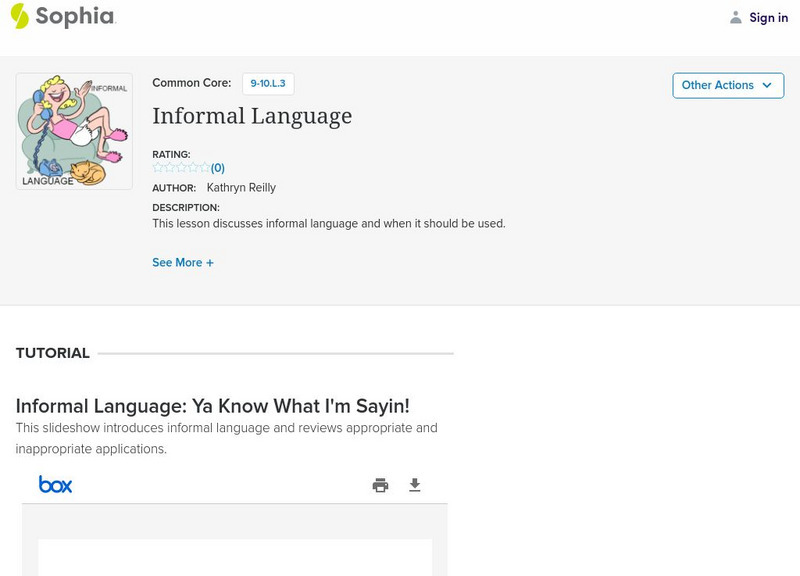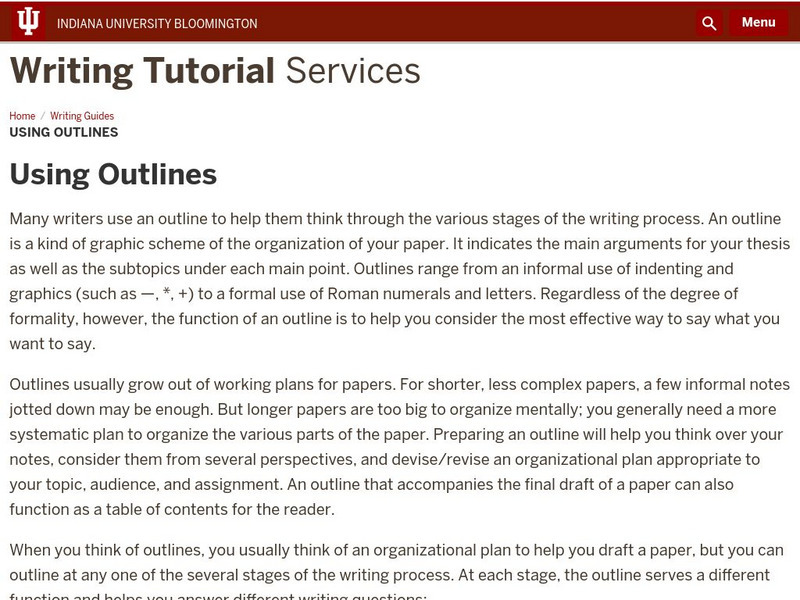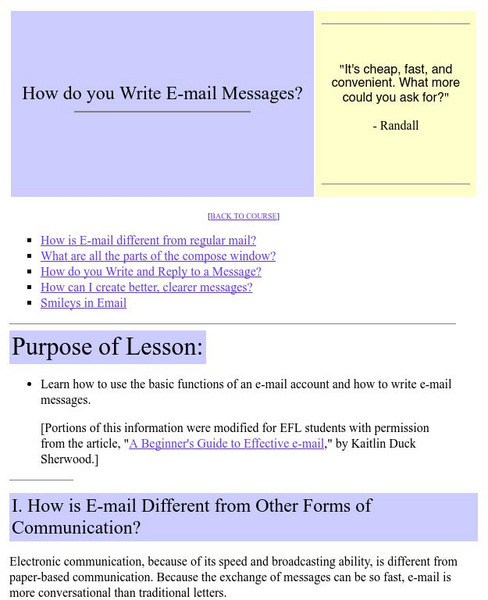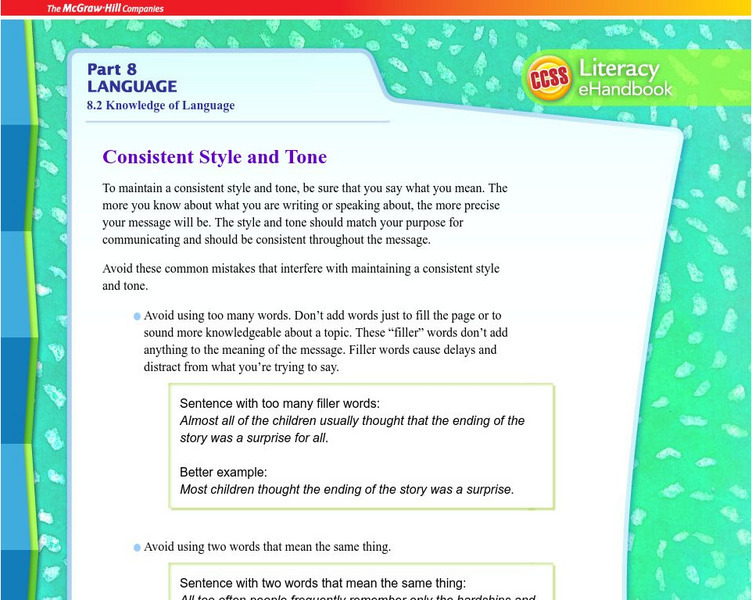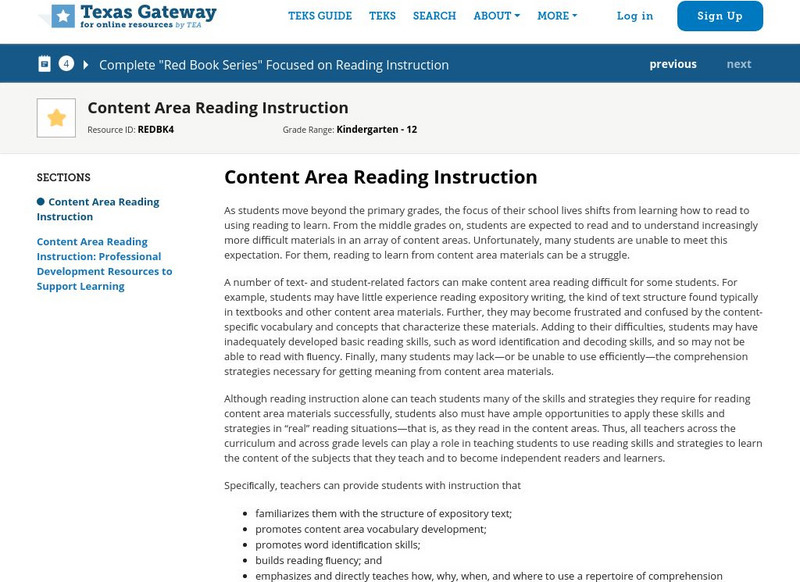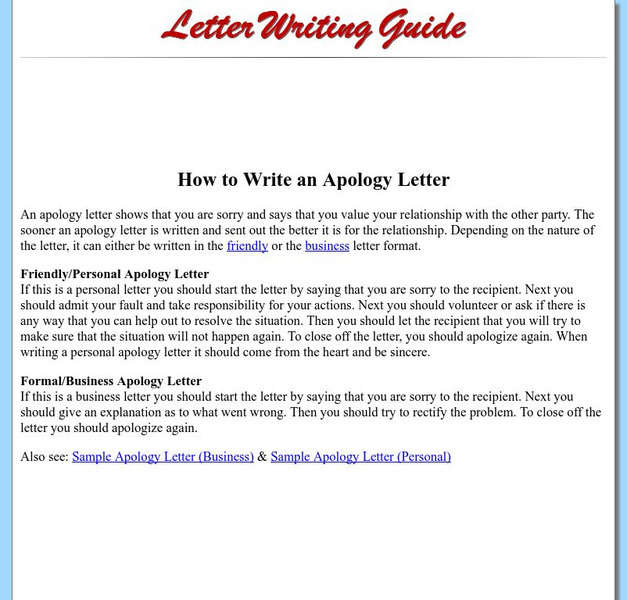BBC
Bbc Bitesize Revision: Formal Tone in a Discursive Essay
This page provides several tips for using formal tone in an essay. The tips are arranged into 'Do' and 'Do not use' categories.
Sophia Learning
Sophia: Informal Language
This lesson discusses informal language and when it should be used. SL.9-10.6 Adapt to task/formal
ClassFlow
Class Flow: Formal Language
[Free Registration/Login Required] This flipchart can be used to understand features of formal official language through, collecting and analyzing examples, discussing when, why they are used; and noting the conventions of the language,...
BBC
Bbc Skillswise: Writing a Letter
This Skillswise site focuses on letter writing. Included is a video about why it is important to learn about letter writing, fact sheets and worksheets for instruction, and quizzes on the information presented. The Skillswise sites from...
TES Global
Tes: Letters: Formal & Informal
[Free Registration/Login Required] This resource provides explanations for different modes of writing. Examples of informal and formats are provided.
Annenberg Foundation
Annenberg Learner: Workshop 6: Responding to Writing: Teacher to Student
"Responding to Writing: Teacher to Student" [58:21] demonstrates how five teachers Jenny Beasley, Vivian Johnson, Mary Cathryn Ricker, Laurie Swistak, and Jack Wildea use student-teacher conferences to help their students improve as...
Grammarly
Grammarly Handbook: Cliches
This page focuse on cliches and explains why they should not be used in formal writing; it provides examples of other words to get the point across more clearly.
ReadWriteThink
Read Write Think: Lesson Plan: Audience, Purpose, Language in Electronic Messages
Lesson plan considers changes in writing style since the inception of e-mail and text messaging.
Grammarly
Grammarly Blog: Anytime vs. Any Time
This page focuses on changes in language usage pertaining to "anytime" and "any time." In informal writing "anytime" can be used, but in formal writing "any time" is perferable. Examples are provided.
TES Global
Tes: Non Fiction Unit 4 Formal/impersonal Writing: Tourists
[Free Registration/Login Required] Students will analyze tourism brochures to determine features related to nonfiction writing in this unit. Tourism websites may be used in lieu of the brochures. Cotswold and the North Leigh Roman Villa...
Sophia Learning
Sophia: Paper Writing: Outlines
Show students how essential an outline is to writing a paper. This source provides explanations for writing an outline and information about how to create both formal and informal outlines.
Indiana University
Indiana University: Writing Guides: Using Outlines
Explains how outlines can be used at different stages in the writing project. Covers outlines developed during research, prewriting, and drafting. Also discusses the formal outline, which may be required with a finished paper. Gives...
Grammarly
Grammarly Handbook: Informalities
A list of style techniques (with examples) used to create an informal tone in a written piece.
BBC
Bbc Bitesize Revision: Discursive (Analytical) Writing
Short tutorial about discursive, or analytical, writing from a Scottish Standard Grade examination preparation site. Contains seven pages of information about the following: organising, essay examples, finding information, planning,...
National Health Museum
Access Excellence: Writing Hypotheses
This informative page describes the true purposes of the hypothesis and how it should be used. Not only shows how they are written, but also helps students figure out the dependent versus independent variable.
Randall Davis
Esl Net world.com: How Do You Write E Mail Messages?
This tutorial explains writing email messages in formal and informal style using Hotmail. It explains the steps taken in composing, replying to, and sending messages.
Grammarly
Grammarly Blog: Consistent Point of View
This Grammarly Handbook resource reminds students how to write with a consistent point of view. Examples are provided to demonstrate how to fix a sentence that contains an inconsistent point of view.
Curated OER
Macmillan/mc Graw Hill: Writing: Consistent Style and Tone
Learn about maintaining a consistent style and tone in writing.
Texas Education Agency
Texas Gateway: Reading Instruction: Content Area Reading Instruction
This website offers a free download of the Research-Based Content Area Reading Instruction booklet. The purpose of this booklet is to provide teachers with research-based and classroom-tested information about each of these aspects of...
Letter Writing Guide
How to Write an Apology Letter
This informational site for teachers and students explains the importance of a letter of apology. Then the article articulates the types of information to include in friendly/personal apology letters and in formal/business apology letters.
BBC
Bbc Bitesize Revision: A Letter
Short tutorial about letter writing from a Scottish Standard Grade examination preparation site. Contains a page of information about personal letters and another about formal letters. This is followed by a five question interactive true...
Capital Community College Foundation
Guide to Grammar and Writing: Tone: A Matter of Attitude
This site focuses on tone and audience with examples.
New Zealand Ministry of Education
Nz Ministry of Education: Listen Up! Speak Up!
In this instructional activity students are given provided many opportunities to practice both informal and formal speaking skills. They begin with informal speaking in pairs, then groups of 4, etc. Then they write several drafts of a...
Sophia Learning
Sophia: Appropriate Language
This lesson focuses on using appropriate language in formal writing; it discusses pretentious language, jargon, and cliches. It defines each, provides examples, and explains why and how to avoid each. SL.9-10.6 Adapt to task/formal
Other popular searches
- Formal Informal Writing
- Formal and Informal Writing
- Formal vs Informal Writing
- Formal & Informal Writing
- Formal vs. Informal Writing


